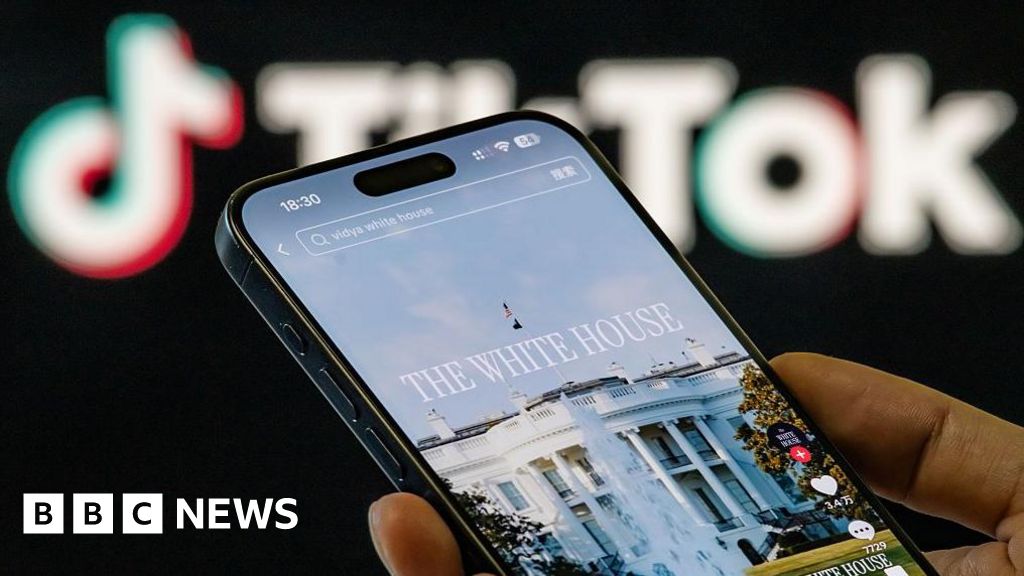
A much-anticipated deal over TikTok’s future in the United States may be on the horizon, with US President Donald Trump and Chinese President Xi Jinping scheduled to discuss terms this Friday. This potential agreement follows a “framework” established by top officials from both nations, which could lead to TikTok’s US operations being sold to a consortium of American companies.
If finalized, this deal would mark a “rare breakthrough” in the often tense US-China trade negotiations, resolving an issue that has dominated headlines for years. Experts have been weighing in on what this deal might mean for TikTok’s 170 million US users and what concessions Beijing might receive in return.
The Core of the Deal: TikTok’s Algorithm
Chinese state media have described the potential agreement as a “win-win” for both countries, while President Trump has expressed his desire to make the deal happen “for the kids.” However, many details remain unclear. Reports suggest that American users could soon have access to a US-specific version of TikTok, possibly managed by a consortium including Oracle and investment firms like Andreessen Horowitz and Silver Lake.
Central to the negotiations is TikTok’s algorithm, the “secret sauce” that personalizes content for users and drives the app’s immense popularity. While other platforms like Instagram and YouTube have attempted to replicate this technology, they have not matched TikTok’s success. A former social media executive, speaking anonymously, noted, “Generally, the one who introduces the technology just knows how to do it better.”
ByteDance, TikTok’s Chinese parent company, has been reluctant to relinquish control of this valuable algorithm, and Beijing has supported this stance. However, in a surprising development, China’s top cybersecurity regulator has indicated that ByteDance might license the algorithm to a US company, though it will not be transferred outright.
Potential Compromises and User Experience
Even with limited access, US companies could gain insights into how TikTok’s technology drives user engagement and ad targeting, according to computing expert Kokil Jaidka. She noted, “It simply doesn’t make business sense for ByteDance to hand over its most valuable asset when a lighter version can keep the app running without giving away its edge.”
These changes might impact the user experience, potentially resulting in a less diverse content feed. Jaidka added, “A lighter, slower, more domestic version – while ByteDance keeps the crown jewels in Beijing.”
Challenges Ahead: Approval and Political Backlash
Despite the optimism surrounding the deal, several hurdles remain. The agreement must satisfy US lawmakers and address national security concerns that have been a focal point since legislation was signed last year, requiring TikTok to hand over control of its US operations or face a ban.
Congressional approval is likely needed, and there is already political backlash in Washington. Republican lawmaker John Moolenaar expressed concern that the framework could still permit Chinese government influence, stating, “Put simply: the statute requires full separation from ‘foreign adversary’ control, and a license would not appear to meet that test.”
Moreover, ByteDance, as a private entity, would need its board’s approval to proceed, adding complexity to the process. The unpredictability of the US president as a trade partner could also introduce new complications.
Strategic Gains for China
While the US stands to gain from securing TikTok’s operations, the strategic benefits for China are also significant. By retaining control over its algorithm, ByteDance maintains a competitive edge, especially if the US aims to launch competing apps.
Kevin Xu, an investor and tech expert, noted that the deal could serve as a “TikTok Template” for other Chinese companies looking to enter the US market through licensing. This could facilitate the flow of critical technologies like batteries and rare earths into the US, enhancing national competitiveness.
Former World Bank Country Director for China Bert Hofman commented on the negotiations, saying, “The Chinese side have called the talks in depth, constructive and candid. That signals that they are actually quite happy with how things are going.”
The TikTok deal, if successful, could buy time for broader trade negotiations between the US and China, both of which have much to lose from high tariffs and export controls. While the US may secure a deal, it might not be the sweeping victory President Trump envisioned.
Kokil Jaidka concluded, “The deal might work on paper – but in practice, it will always sit under a cloud. A US TikTok will look like the same app, but behind the scenes it will run on borrowed code, firewalled data, and political trust that could vanish overnight.”





